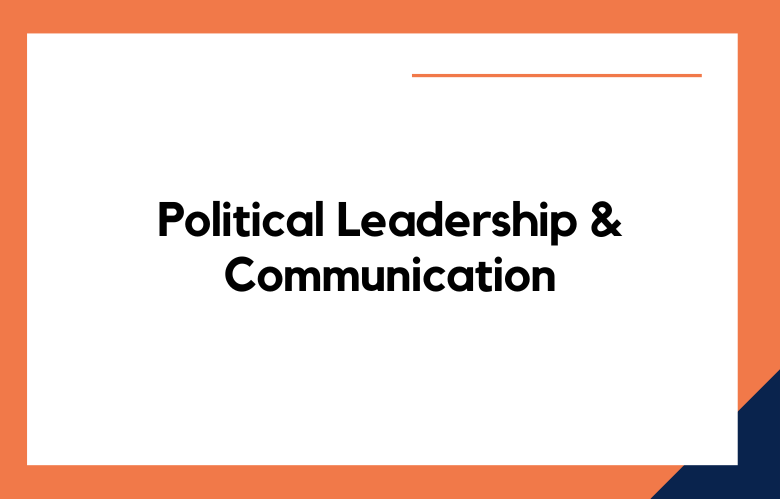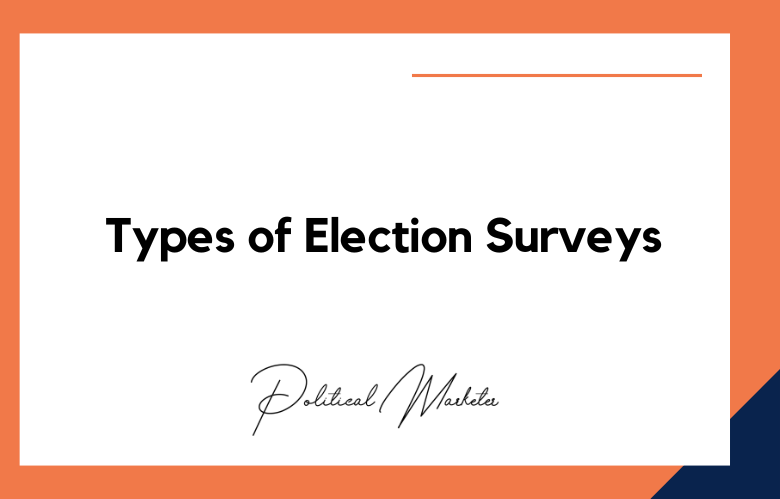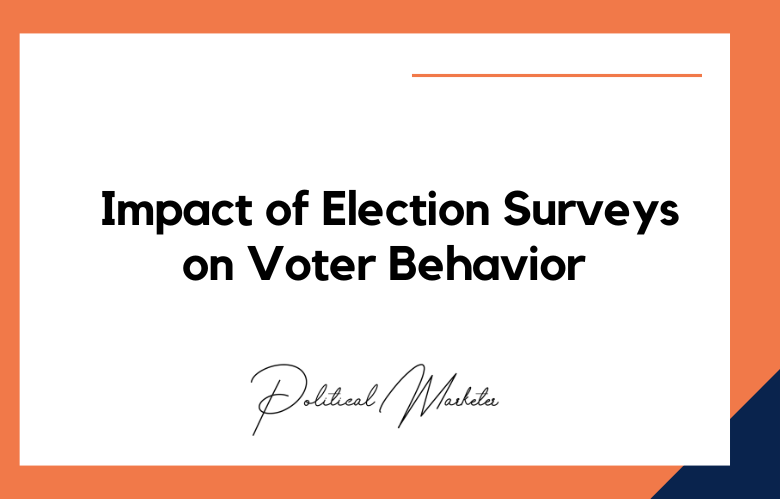Strong leadership skills and excellent communication strategies are crucial to success in any political campaign. Political leadership and communication are so intertwined that it’s easier to succeed in one with having solid fundamentals in the other.
While some argue that only a few individuals are born with exemplary leadership skills, the good news is that anyone can become a great political leader and communicator with the right mindset and a good plan of action.
We will explore political leadership and communication and provide tips on becoming a successful political leader.
Understanding Political Leadership and Communication – How it Affects the Masses
Politics is a topic that has caused strife in the world for centuries, yet it remains essential to our very existence.
The leadership of governments worldwide has a significant impact on our lives, and how these leaders choose to communicate ultimately determines our perceptions of them. We will explore political leadership and communication and how they affect the masses.
Political leadership refers to the ability of political figures to influence individuals, organizations, and other political entities toward a common goal.
A political leader must have excellent communication skills to inspire, motivate, and negotiate with people and groups. They must communicate their ideas, plans, and intentions clearly and succinctly.
Importance of Political Leadership and Communication
The importance of political leadership and communication cannot be overstated. Both elements work hand in hand to create a positive impact on the people. Effective leadership and communication help to build trust, promote transparency, and foster a strong relationship between the government and the citizens.
On the other hand, poor leadership and communication adversely affect the public. Political instability, lack of faith in the government, and a breakdown in law and order are some consequences of poor political leadership and communication.
The Art of Political Leadership and Communication
Leadership is an integral aspect of politics. Political leaders are expected to inspire and influence their followers, work towards their goals, and ensure their welfare. Effective leadership, therefore, requires effective communication.
It is an art that involves the skillful use of language, body language, and symbolism to convey the desired message. Political leadership and communication go hand in hand and Attempts to explain what political leadership and communication entail.
Political leadership is not just about holding a position in the government. A leader must have a vision and must be able to articulate it clearly. They should be able to persuade others to adopt it.
A political leader must also be willing to take risks, make difficult decisions, and lead by example. When leaders observe these qualities, they inspire those around them to follow suit.
To lead, one must have a following; to have a next, one must communicate efficiently.
The Power of Political Leadership and Communication
Political leadership and communication are two sides of the same coin in politics. As citizens, we rely on our leaders to communicate their vision, policy initiatives, and decisions effectively.
Communication skills are essential for leaders since they must effectively deliver messages to diverse audiences, such as voters, other politicians, and international leaders.
Political leadership requires individuals to possess excellent communication skills and a range of characteristics such as vision, courage, empathy, and integrity.
The first characteristic of political leadership is vision. Political leaders should have a clear and compelling idea of what they hope to achieve, where they want to take the country, and the necessary steps to get there.
Understanding Political Leadership
Political leadership entails the capacity and ability to navigate the political landscape while providing direction and executing policies.
A strong political leader can build coalitions, negotiate with stakeholders, create sound policies, and execute them. It is essential to communicate a clear vision and to be able to inspire others to follow it.
A political leader must possess the following qualities:
- Strong communication and interpersonal skills
- Ability to connect with people from diverse backgrounds and cultures
- Visionary thinking
- Willingness to listen and take action based on feedback
- Resilience and ability to adapt to change and unforeseen circumstances
- Accountability and transparency
Effective Communication Strategies
Effective communication strategies are fundamental to political leadership. The following are some best practices to apply when communicating in a political setting:
Identify Your Audience
Understanding your audience and their preferences can help tailor your message and increase effectiveness.
Use Data/Proven Insights
Relying on proven research, statistics, or expert opinions helps lend credibility to your arguments and can help sway a skeptical voter.
Storytelling
Stories help convey a message in a way other formats cannot. They are memorable, can resonate with audiences, and add a human touch to what may be considered a dry topic.
Strategies for Building Strong Coalitions
Building solid coalitions plays a vital role in increasing the chances of success in political elections. Here are some best practices for creating alliances:
Finding Common Ground
Identifying shared goals and values with potential partners is essential to forming alliances that can work together effectively.
Leveraging Social Networks
Social networks, such as LinkedIn, Facebook, and Twitter, provide excellent platforms for reaching potential partners.
Keeping Partners Engaged Continuously
Keeping partners engaged continuously can help maintain working relations and minimize the risks of partnerships breaking down.
Challenges of Political Leadership and Communication
Political leadership and communication come with various challenges, and it’s essential to be aware of them to be prepared to address them effectively.
Some of these challenges include:
- Being in the public eye constantly and facing non-stop scrutiny
- Balancing competing interests of stakeholders
- Dealing with unexpected crises
- Negative media coverage or public opinion
- Facing opponents keen on discrediting your campaign
Conclusion
Political leadership and communication are the foundations of any successful political campaign.
While there is no one “perfect” candidate or strategy, developing strong leadership skills and applying effective communication strategies can help to navigate the campaign landscape more efficiently.
Candidates can increase their chances of achieving the desired outcome by building strong coalitions, identifying their audience, using proven insights, and measuring success metrics.
By being aware of the challenges of political leadership and communication, candidates can better prepare for success.
Call: +91 9848321284
Email: [email protected]
Frequently Asked Questions (FAQs)
What is political leadership?
Political leadership refers to the ability of elected or appointed officials to guide, influence, and inspire people or institutions toward a shared vision, typically through policy, persuasion, and governance.
Why is communication essential for political leadership?
Effective communication helps leaders articulate vision, build trust, manage crises, influence opinion, and create emotional connections with the public and stakeholders.
What qualities define a strong political leader?
Key traits include integrity, empathy, decisiveness, vision, resilience, public speaking skills, and the ability to unify diverse groups.
How does political communication differ from regular communication?
Political communication is strategic, persuasive, and public-facing, designed to influence public opinion, media narratives, and policymaking.
What are the key components of political communication?
These include speeches, press releases, interviews, social media messaging, campaign slogans, policy explanations, and interpersonal engagement.
What is the role of media in political leadership?
Media serves as a channel for political messaging, image management, public feedback, and agenda setting. It can amplify or damage a leader’s credibility.
How does emotional intelligence support political leadership?
Leaders with high emotional intelligence can manage stress, connect with citizens, handle criticism gracefully, and build strong relationships.
What are common challenges political leaders face in communication?
Challenges include misinformation, media bias, hostile audiences, message misinterpretation, and managing communication during crises.
How do political leaders build public trust?
By being transparent, consistent, responsive, accountable, and empathetic in both words and actions.
What is the role of speechwriting in political leadership?
Speechwriting enables leaders to clearly convey their vision, inspire action, control narratives, and respond to public sentiment.
How does body language influence political communication?
Non-verbal cues such as posture, gestures, and facial expressions significantly impact audience perception, credibility, and emotional resonance.
What is crisis communication in politics?
It involves delivering timely, accurate, and reassuring messages during emergencies or scandals to preserve public trust and minimize damage.
How do political leaders handle public criticism or opposition?
Skilled leaders listen, acknowledge concerns, address misinformation, stay composed, and reframe the narrative constructively.
Why is storytelling powerful in political leadership?
Personal or community stories humanize leaders, make policies relatable, and emotionally connect with voters.
How do digital platforms change political leadership communication?
Digital tools like social media, video content, and live streaming allow for direct, unfiltered, and rapid engagement with the public.
What communication strategies do successful leaders use?
They use repetition, simplicity, emotional appeal, authenticity, and tailored messaging for different audiences.
What is the importance of listening in political communication?
Active listening helps leaders understand citizen needs, foster dialogue, and craft responsive and inclusive policies.
Can poor communication damage political leadership?
Yes, unclear or inconsistent messages can erode trust, provoke backlash, and undermine credibility.
How do political leaders communicate vision effectively?
By articulating clear goals, aligning policies with public values, and using persuasive and inspiring language.
What’s the future of political communication and leadership?
Expect more AI-driven messaging, immersive formats (AR/VR), real-time feedback loops, data-informed narratives, and heightened scrutiny for authenticity.










